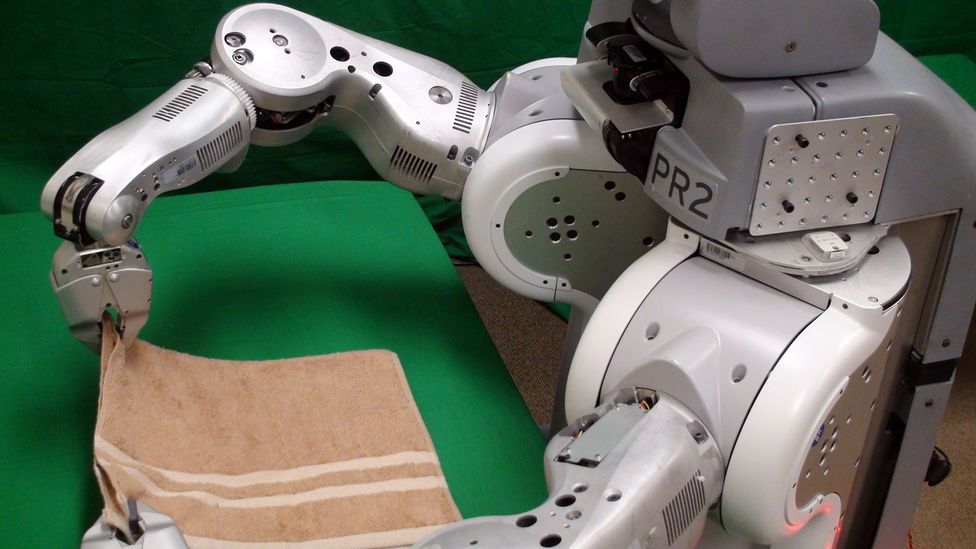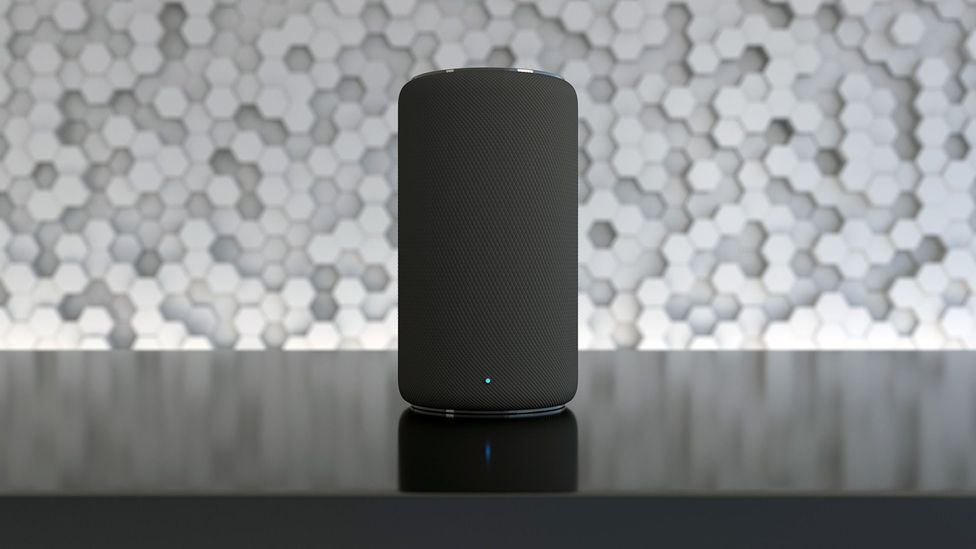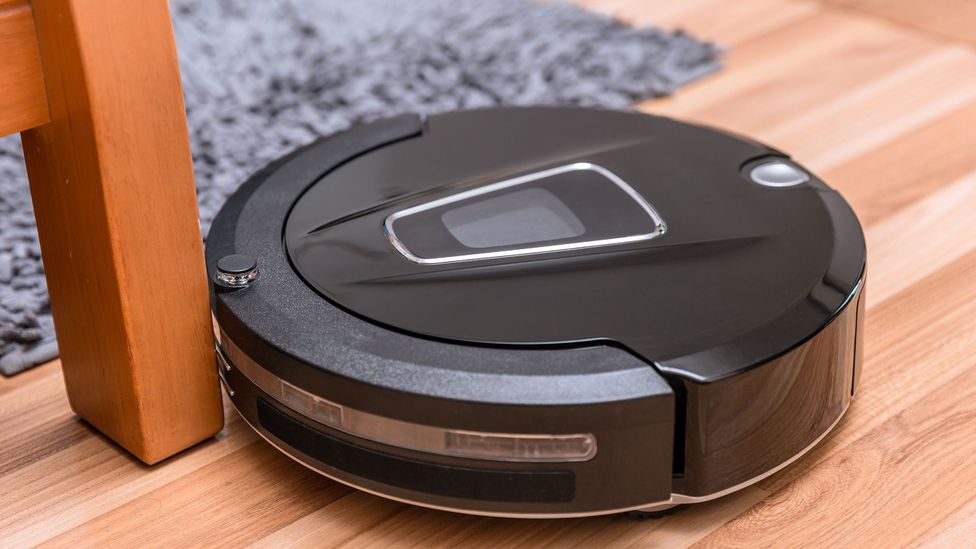How Much Does Jibo the Family Robot Cost
Is this the terminate of household chores?
(Image credit:
Getty Images
)

Nosotros're at the bespeak where AI can accept on mundane household tasks – if slowly. And the implications of this technology become far beyond folding laundry.
F
Few of u.s. relish housework. Who wouldn't welcome a helping hand to tackle chores like laundry?
So it may be exciting to acquire that laundry-folding robots already exist. The best-known version is the Japanese clothes-folding machine the Laundroid. Another ane has recently been invented, likewise, with software designed past the University of California, Berkeley and hardware past Rethink Robotics.
But don't get too excited. While the robots have an admirable level of concentration on the chore at hand, their progress is painfully boring. The Laundroid takes four minutes to fold an item. The Rethink Robotics helper? Xv.
The robots may be coming, but probably not for a while.
You might too like:
• The designers helping us to embrace robots
• The 'super suit' that helps people motion
• Will artificial intelligence judge u.s.a.?
Still, getting the technology even this far was a feat. And developing robots that can help at home doesn't just assistance with the laundry: information technology allows researchers to understand core problems with AI in general. If they can crack a laundry-folding robot, they tin can apply these lessons to other, more critical situations, such equally emergency response, disaster recovery or household caregiving.

Folding a single towel may take this robot xv minutes, but the engineering's importance goes beyond laundry (Credit: Berkeley AI Research Lab/Berkeley Robot Learning Lab)
This is because developing autonomous assistants to help with domestic tasks is more complicated than it seems. While household chores are relatively piece of cake for humans to achieve, they are surprisingly hard for an autonomous system to sympathise and carry out reliably.
This is the paradox, says Mariana Pestana, co-curator of the exhibition The Future Starts Here at London's Victoria & Albert Museum where the robot is featured. It "comes out of deep learning and one of the universities at the forefront of AI development – only takes xv minutes to do something we unconsciously do in seconds."
An average household has constantly varying conditions – such as children who do non necessarily understand the robot's inner workings and who may issue it with arbitrary new objectives every day (think of the requests issued to Apple'southward Siri).
"An autonomous assistant that works well in this setting would have to be versatile, robust to changes in the environs, and piece of cake to work with," says Siddharth Srivastava, who helped develop the robot while a staff scientist at Berkeley.
Sentinel the laundry-folding robot in (dull-paced) action beneath:
I of the challenges encountered by Srivastava and his team was getting the robot to empathise the kind of high-level tasks that its human main might want it to do. "As anyone who has worked in a team knows, an assistant is non very helpful if they need instructions almost every minute aspect of the problem," Srivastava says.
Robots, of class, take no 'innate' knowledge. While we might similar to tell an assistive robot to just 'do the laundry', the robot needs much more information, from how to move each of its joints to where information technology should look as it performs each operation, and how to use its cameras and sensors.
These difficulties are farther compounded if nosotros want a robot that can exercise more than merely the laundry. After all, a one-task robot would be of limited help in blitzing domestic duties.

Digital home assistants are getting better at agreement a variety of instructions, simply they remain far from foolproof (Credit: Getty Images)
So a truly helpful robot would need to take and perform a range of tasks given past its user. Clearly, information technology is not possible to pre-plan the robot for every possible chore permutation in every single household. "Instead," Srivastava says, "we need to develop algorithms for hierarchical planning, perception and reasoning that would permit the robot to compute what it needs to practice in lodge to solve a given job." This is far from a solved problem – information technology'southward an agile surface area of research, with many teams developing and testing possible solutions.
Can Srivastava envisage a time when domestic assistive robots will be commonplace? For him, the modify will be gradual, in keeping with other autonomous AI and robotics applications, such as cocky-driving cars. Robotic vacuum cleaners already exist. So, of course, do digital administration such every bit Alexa (which, in theory, can reply bones questions – though feel suggests it often doesn't take much to stump them).

Robotic vacuum cleaners already exist (Credit: Getty Images)
Simply the computational complexity of reasoning and planning over extended time periods is higher, and it also involves boosted problems that are not so critical for existing applications.
Assistive robots need to be like shooting fish in a barrel to use and adaptable to the skill level of the person they are helping – who, for the nigh part, are unlikely to have advanced degrees in AI and robotics. And robots need to carry out tasks that the system designers may not accept planned for.
"Unlike the domain of operations of industrial robots and cars, households are much more unstructured and expected behaviours are more difficult to define," Srivastava says. "In order to realise the potential of widespread societal do good from assistive AI systems, we demand to develop new principles for designing them in a style that makes them easier to piece of work with, understand, and maintain."
Once that is developed, though, there are enough of possibilities for other applications. Robots could assist with wound care, medication management or preparing food for special diets.
Multiple problems demand solving earlier this is a reality – but in that location may be a mean solar day when we wait back on a plodding laundry-folding robot equally the beginning of the stop of humanity's household chores.
You lot can see the laundry-folding robot in the exhibition The Time to come Starts Hither at London'southward Victoria & Albert Museum, on until 4 November 2018.
Join 900,000+ Future fans past liking u.s. on Facebook, or follow us on Twitter or Instagram.
If you lot liked this story, sign upwards for the weekly bbc.com features newsletter, called "If You Only Read half-dozen Things This Week". A handpicked selection of stories from BBC Future, Culture, Capital, and Travel, delivered to your inbox every Friday.
Source: https://www.bbc.com/future/article/20180730-could-robots-do-our-household-chores-like-laundry
0 Response to "How Much Does Jibo the Family Robot Cost"
Post a Comment